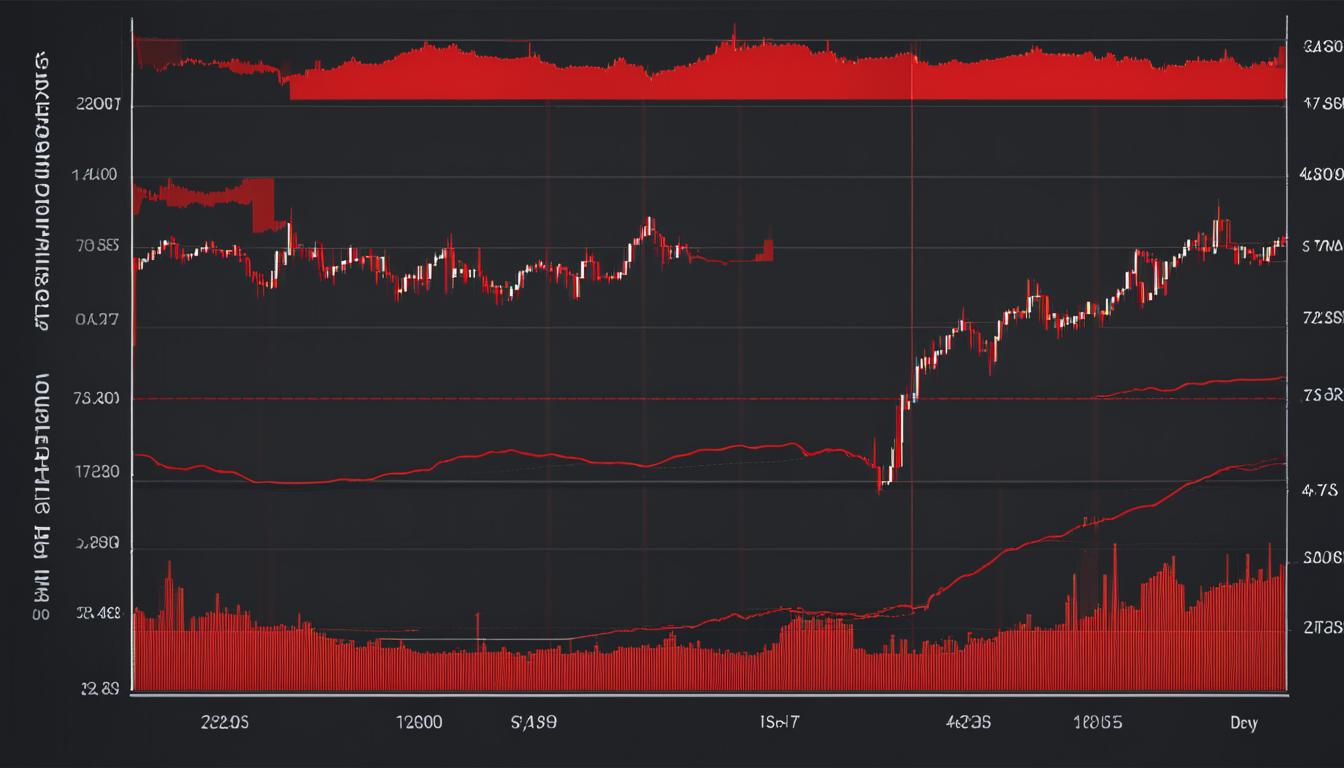Options Settlement: How are the contracts settled?

Options settlement is the crucial process by which the terms of an options contract are resolved when the contract is exercised. It determines how the buyer and seller fulfill their obligations and complete the transaction. Understanding options settlement is essential for investors in the options market to navigate the complexities of contract resolution.
There are two primary types of options settlement: physical settlement and cash settlement. Physical settlement involves the actual delivery of the underlying asset, while cash settlement is made in cash instead of physical delivery. The choice between the two depends on the type of options contract and the preferences of the buyer and seller.
The settlement date and time play a vital role in options settlement. They are standardized based on the terms of the options contract and ensure a smooth and orderly process. Investors need to be aware of these dates and times to plan their strategies and manage their positions effectively.
Key Takeaways:
- Options settlement is the process of resolving the terms of an options contract when it is exercised.
- There are two types of settlement: physical settlement and cash settlement.
- Physical settlement involves the delivery of the underlying asset, while cash settlement is made in cash.
- The settlement date and time are standardized based on the options contract terms.
- Understanding options settlement is crucial for investors in the options market.
Understanding Cash-Settled Options
Cash-settled options are a popular type of options contract that offers traders and investors an alternative to physical delivery of the underlying asset. With cash settlement, the options contract is resolved by a cash payment rather than the transfer of the actual asset. This makes cash-settled options particularly suitable for index options and other financial derivatives where the underlying asset may be difficult or costly to deliver.
Examples of cash-settled options include digital options, binary options, cash-or-nothing options, and plain-vanilla index options. Digital options pay out a fixed amount if the underlying asset reaches a specific price level, while binary options have a fixed payout depending on whether the asset’s price is above or below a predetermined level. Cash-or-nothing options also provide a fixed payout, but only if the asset’s price is exactly at the strike price. Plain-vanilla index options settle to the cash value of an index, providing exposure to the broader market without the need for physical delivery.
H3: Advantages of Cash-Settled Options
Cash-settled options offer several advantages compared to physical delivery options. Firstly, they eliminate the logistical challenges and costs associated with physical delivery, such as transportation fees and storage costs. Secondly, cash settlement allows investors to trade and speculate on the underlying asset’s price movements without the need to actually own or possess the asset. This can be especially beneficial in situations where the asset is illiquid or difficult to acquire in large quantities. Lastly, cash settlement provides a more efficient and convenient method of settling options contracts, making it particularly attractive for index options and other cash-settled derivatives.
| Types of Cash-Settled Options | Description |
|---|---|
| Digital Options | Pay out a fixed amount if the underlying asset reaches a specific price level. |
| Binary Options | Have a fixed payout depending on whether the asset’s price is above or below a predetermined level. |
| Cash-or-Nothing Options | Provide a fixed payout if the asset’s price is exactly at the strike price. |
| Plain-Vanilla Index Options | Settle to the cash value of an index, offering exposure to the broader market. |
Options Settlement Process
The options settlement process is a crucial aspect of options trading, determining how the terms of an options contract are resolved at expiration. It involves two main components: exercise and assignment.
Exercise
Exercise refers to the action taken by the holder of an options contract to invoke their right to buy or sell the underlying asset at the specified strike price. This can only be done at or before the expiration date. If the options contract is in-the-money, meaning the price of the underlying asset is favorable for the holder, they may choose to exercise the option. However, if the option is out-of-the-money, it is typically not exercised as it would result in a loss for the holder.
Assignment
In contrast, assignment is the process by which the seller of an options contract is obligated to fulfill the terms of the contract when it is exercised by the holder. When an options contract is exercised, the seller may be assigned the obligation to deliver the underlying asset (in the case of a call option) or buy the underlying asset (in the case of a put option). Assignment can occur at any time before expiration for American-style options, while European-style options can only be assigned at expiration.
It’s worth noting that early assignment is possible with American-style options, but it is not as common. Early assignment means that the options contract is exercised before the expiration date. This can happen if the underlying asset undergoes a significant price change, making it advantageous for the holder to exercise the option early. It’s important for options traders to be aware of the possibility of early assignment and manage their positions accordingly.
| Key Concepts | Definitions |
|---|---|
| In-the-money | When the price of the underlying asset is favorable for the holder of the options contract. |
| Out-of-the-money | When the price of the underlying asset is unfavorable for the holder of the options contract. |
| American-style options | Options that can be exercised at any time before expiration. |
| European-style options | Options that can only be exercised at expiration. |
Physical Settlement vs Cash Settlement
When it comes to options settlement, there are two main methods: physical settlement and cash settlement. Understanding the differences between these two approaches is crucial for options traders. Let’s take a closer look at how physical settlement and cash settlement work and the key considerations associated with each.
Physical Settlement
In physical settlement, the underlying asset is actually delivered to the buyer or seller when an options contract is exercised. This means that if you buy a call option, you will receive the shares of stock at the contract’s strike price. On the other hand, if you sell a call option, you will be obligated to deliver the shares to the buyer. Physical settlement is commonly used for equity options, where the underlying asset is typically a stock.
One of the key aspects of physical settlement is the settlement period. This refers to the timeframe during which the buyer and seller need to have the necessary shares in their respective accounts. It is important for both parties to ensure that they can meet the settlement period requirements to avoid any complications. Additionally, dividend assignment is a risk associated with physical settlement. If you are the seller of a call option and the stock pays a dividend, you may be assigned the obligation to pay the dividend to the buyer.
Cash Settlement
Unlike physical settlement, cash settlement does not involve the actual delivery of the underlying asset. Instead, the settlement is made in cash. Cash settlement is commonly used for index options, where the underlying asset is an index rather than a specific stock. With cash settlement, the payment made at settlement is based on the cash value of the underlying index at that time.
Cash settlement offers several advantages, including efficiency and convenience. It eliminates the need for physical delivery, which can involve transportation fees and storage costs. Additionally, cash-settled options can be more easily traded and speculated on without the complexities associated with physical delivery. However, it is important to be aware of the risks and factors that can impact the cash settlement amount, such as changes in the underlying index value.
Overall, the choice between physical settlement and cash settlement depends on the specific options contract and the preferences of the buyer and seller. Understanding the differences and implications of each method is essential for navigating the options market effectively.
Conclusion
Options settlement is a critical component of options trading, offering investors the ability to settle contracts through physical delivery or cash settlement. Cash-settled options provide numerous advantages, including cost reduction, convenience, and accessibility for buyers and sellers. Whether it’s reducing transportation and insurance costs or providing a straightforward way to speculate on the market, cash settlement offers financial solutions to investors.
The settlement process is facilitated by clearing houses and brokers, ensuring that the terms of the options contract are fulfilled. These organizations provide options settlement services that streamline the process and mitigate risk for investors. With the help of these services, investors can focus on their financial goals while leaving the settlement process in capable hands.
Options settlement accounts play a crucial role in managing and tracking settlement activities. These accounts enable investors to efficiently monitor their options contracts and ensure that settlements are executed smoothly. By utilizing options settlement accounts, investors can stay organized and informed about their open positions and settlement activities.
In conclusion, options settlement offers financial solutions and risk mitigation for investors in the options market. Through cash settlement, clearing houses, options settlement accounts, and the guidance of brokers, investors can navigate the complexities of options trading with confidence.
FAQ
How does options settlement work?
Options settlement is the process by which the terms of an options contract are resolved when the contract is exercised. There are two types of settlement: physical settlement and cash settlement.
What is cash settlement?
Cash settlement is a type of options settlement where the settlement is made in cash instead of physical delivery. It is commonly used for index options and other cash-settled options.
When does options settlement occur?
Options settlement occurs at the expiration of the options contract, typically on a standardized settlement date and time based on the contract’s terms.
What is the difference between exercising and assignment?
Exercising options involves the holder invoking their right to buy or sell the underlying asset at the strike price, while assignment is the process by which a seller is obligated to fulfill the terms of the contract when it is exercised.
What is physical settlement?
Physical settlement involves the actual delivery of the underlying asset when an options contract is exercised. For example, the buyer of a call option will receive the shares at the strike price, while the seller will be obligated to deliver the shares.
What is cash settlement primarily used for?
Cash settlement is primarily used for index options as it ensures a more efficient and convenient settlement process.
What is dividend assignment?
Dividend assignment is a risk associated with cash settlement, where the seller of a call option may be assigned the obligation to pay a dividend on the underlying stock.
How do cash-settled options benefit investors?
Cash-settled options offer advantages such as reducing transportation and insurance costs, providing a convenient way to speculate on the market without dealing with the underlying asset directly.
Who facilitates the options settlement process?
The options settlement process is facilitated by clearing houses and brokers, ensuring that the terms of the options contract are fulfilled.
What role does options settlement play in options trading?
Options settlement plays a crucial role in options trading by providing investors with different methods to settle their contracts, offering financial solutions and risk mitigation.






